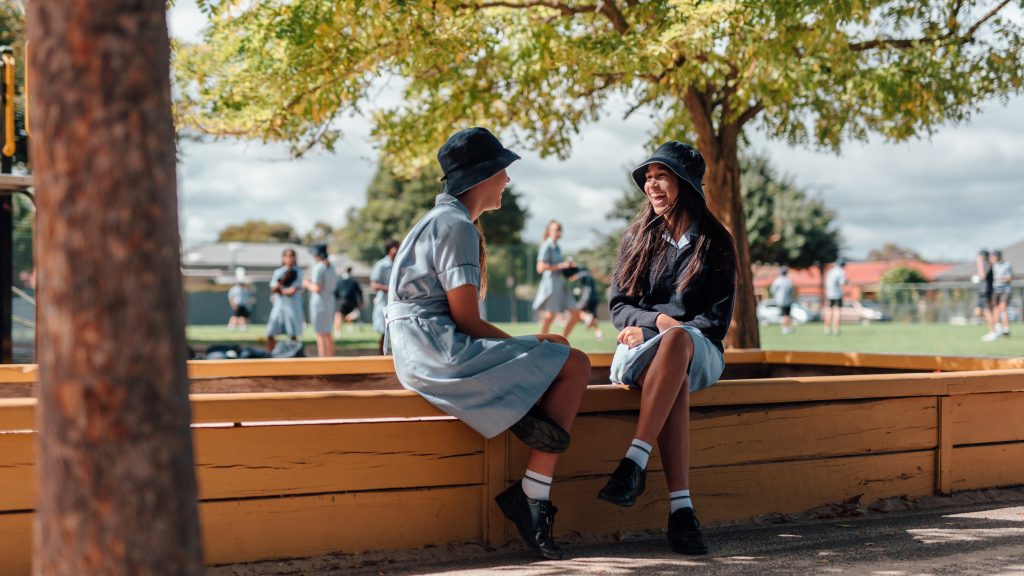Years 7 to 9 Subjects – Health and Physical Education
Health and Physical Education provides students with an experiential curriculum that is contemporary, relevant, challenging and physically active. Our aim is to continually build students' abilities to transfer across sporting disciplines, allowing them to remain physically active now and into the future.
Students develop the skills, knowledge, and understanding to strengthen their sense of self and build and maintain respectful relationships. They learn to build on personal and community strengths and assets to enhance safety and wellbeing. They critique and challenge assumptions and stereotypes. Students learn to navigate a range of health-related sources, services and organisations.
At the core of Health and Physical Education in Years 7 to 9 is acquiring movement skills and concepts to enable students to participate in various physical activities – confidently, competently and creatively. As a foundation for lifelong physical activity participation and enhanced performance, students acquire an understanding of how the body moves and develop positive attitudes towards physical activity participation. They develop an appreciation of the significance of physical activity, outdoor recreation and sport in Australian society and globally. Movement is a powerful medium for learning through which students can practise and refine personal, behavioural, social and cognitive skills.
Facilities
Lessons are conducted across various specific learning areas on the soft play (grass), synthetic turf, hard play (hard courts) and the indoor gymnasium. We also have strong relationships with other local specific sporting facilities and associations for students to access for the sport conducted at the time, allowing them to develop and refine specific skills and understanding for game play.
Sport Curriculum
Our sports program is closely aligned with SACSA competitions, offering students the opportunity to develop a broad range of physical skills and experiences. Students participate in the following sports:
| Athletics | Modified Games |
| AFL | Netball |
| Badminton | Soccer |
| Basketball | Squash |
| Cross Country | Table Tennis |
| Fitness and Testing | Touch Football |
Theory Curriculum
In addition to practical participation, students explore theoretical concepts that support their understanding of human movement and performance. These foundational topics include:
- Basic First Aid
- Human Body Systems: Skeletal System, Articular System, Muscular System and Vital Organ Function
- Skill Acquisition and Motor Learning
- Training Principles and Methods
- Sport Psychology
- Energy Systems
Learning Tasks and Assessments
Students consolidate their knowledge and understanding of Health and Physical Education through various learning tasks and assessment types. These include:
- Self, Peer and Video Analysis
- Advertisements
- Journal / Personal Reflections
- Analysis of Newspaper articles and other sources
- Podcasts
- Multimodal Presentations
- Reports
- Video recordings, data collection and analysis
- Others depending on students interests and abilities
Uniform Expectations
As part of Health and Physical Education lessons, students are required to wear the correct PE uniform consisting of:
- Emmaus polo shirt
- Emmaus shorts (Shorts need to be correct fit and not too baggy)
- Emmaus wide brim or bucket hat
- Running shoes or cross trainers (Skate Shoes or Dunlop Volleys are not permitted as they don’t provide appropriate support for ankles or sole of their feet)
- Emmaus tracksuit on cooler days (Shorts and shirts need to be worn under the tracksuit so that it can be removed when students have warmed up)
- Sports drink bottle (water only)
Students who are injured or ill are still required to be changed, as they will be incorporated into the lessons where possible (e.g., umpiring, coaching, statistician, video recorder, etc.). A note from parents/caregivers or a specialist outlining your child’s injuries and possible timeframe they may be out of action for practical lessons is greatly appreciated.

